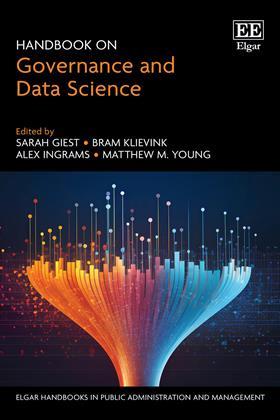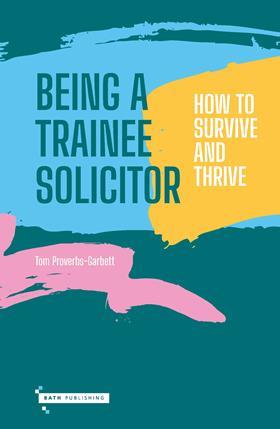Handbook on Governance and Data Science
Sarah Giest, Bram Klievink, Alex Ingrams, Matthew M Young
£215, Edward Elgar Publishing
★★★✩✩
This is a loosely grouped collection of articles looking at governance in the sense of the activities of government – and its relationship with data. Taking as its starting premise the data ‘revolution’, the work considers the benefits and pitfalls of big data usage, including AI (which, with innovation, gets its own section in the middle third of the book, as one might expect given it is the topic de jour).
It is perhaps an extremely deep dive to conclude things we (the public) sense intuitively, namely that big data should be handled with care, is not always reliable (or, at least, reliably reported) and may not be the problem-solving panacea we are led to believe. That is not to undermine the forensic work that has gone into the book’s production, written as it is for a very specific academic audience.

Interesting studies look respectively at data derived from public petitions to parliament – attempting to distil key concerns for the electorate, linking that data to geography, and then predicting the issues for politicians campaigning in those areas in the next election – and data from social media posts, analysing for substantive personal information. The conclusion of the latter (perhaps counterintuitively) is that there is little for government to make use of, whereas the former identifies familiar issues: the NHS and the cost of living.
The substance, however, is not the claim. The work is focused instead on how data can be utilised to enhance governance. Still, these examples foreshadow the note of caution that emerges in the final third of the book, which concentrates on practical uses of big data by government and suggests some policy recommendations.
Issues identified include the reliability of data and the risks of increasingly available data driving what is measured rather than the other way around (that is, deciding what to measure and seeking the data). Data and its tools of analysis should be used cautiously, transparently and in conjunction with citizens.
Those responsible for public policy are encouraged to find the right tool for the job and understand why it is being used in a public policy context. Big data analysis may not have the answer, and a knowledge of what such an approach can offer (and what it cannot) is important – that alone is justification for the book’s existence.
Tom Proverbs-Garbett is the director of TrustPoint Governance
Being a Trainee Solicitor: How to Survive and Thrive
Tom Proverbs-Garbett

£20, Bath Publishing
Drawing on case studies and practical advice, solicitor Tom Proverbs-Garbett sets out to make a trainee’s first day in the office less daunting, with an understanding of how professional practice works. With the book set out in three parts – ‘what to expect’, ‘doing the work’ and ‘completion and beyond’ – Proverbs-Garbett offers advice on a host of topics. These include training, managing mistakes and managing time, supervision, clients and firm life. He goes on to consider qualification and secondment. There is also a handy guide to jargon. In his foreword, Andrew Masraf, partner at Pinsent Masons, says this book ‘demystifies the exciting but daunting step into life as a trainee solicitor’.































No comments yet